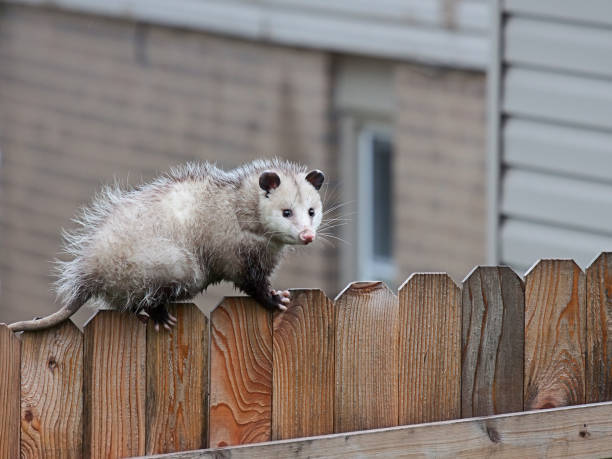Possums might look harmless in the backyard, but once they move into your roof, they can cause serious problems. Many homeowners aren’t aware that possums can actually pose a fire risk. From chewing through electrical wiring to damaging insulation and causing ventilation issues, their activity can lead to serious safety concerns. If you’re considering possum control in Melbourne, it’s important to understand the hidden dangers of letting possums nest overhead.
Chewing on Electrical Wires
One of the most serious fire risks caused by possums is their tendency to chew through electrical cables. Like rodents, possums have strong teeth and a habit of gnawing, especially when they’re trying to make room to nest or explore new areas.
When possums chew through wiring, they strip away protective insulation, exposing live wires. These exposed cables can easily spark and ignite dry insulation or timber framing in your roof cavity. This is particularly dangerous in older homes, where wiring may already be brittle or outdated.
In many fire investigations, damaged electrical cables caused by wildlife are found to be the likely source. By the time the issue is noticed, extensive damage may have already occurred. That’s why early detection and removal are crucial in preventing a costly and potentially life-threatening event.
Damage to Insulation and Building Materials
Possums are known to tear into insulation to create nests, leaving behind shredded, flattened, and contaminated material. While this may seem like just an energy-efficiency issue, it also becomes a fire hazard.
When insulation becomes dry, loose, and damaged, it’s more likely to catch fire — especially if it comes into contact with exposed wires or heat from light fittings. Damaged insulation doesn’t just increase heating and cooling costs; it also increases the fuel load in your roof, making any fire more difficult to control.
In addition to insulation, possums may damage timber battens, plasterboard, and even ductwork, weakening the structure and potentially allowing heat or sparks to spread rapidly through the roof cavity.
Nesting Behaviour and Blocked Ventilation
Possums often nest in roof cavities, bringing in leaves, twigs, bark, and other dry material to build their shelters. These materials can build up quickly and become a serious fire risk, especially during the warmer months when they’re completely dried out.
Additionally, possums sometimes block vents and ducts with nesting material, reducing airflow and creating heat build-up. Blocked exhaust fans, for instance, can overheat and cause small electrical fires to ignite in roof spaces — fires that are hard to detect until it’s too late.
This nesting behaviour might seem harmless at first, but over time, it turns your ceiling space into a dangerous combination of flammable debris and restricted ventilation.
Urine, Faeces, and Electrical Corrosion
Possums don’t just bring in fire-prone nesting materials — they also leave behind urine and faeces, which can soak into electrical components and timber structures. Over time, this causes corrosion in wiring and terminals, making them more prone to arcing or short-circuiting.
Moisture from possum waste can also affect the function of smoke alarms or electrical boxes located in ceiling spaces, leading to malfunction or total failure. In a fire emergency, that could be the difference between damage and disaster.
This kind of contamination often requires a full clean-out and rewiring — a costly job that’s far more expensive than preventing the issue in the first place. And for many households, this is when the reality of possum control cost Melbourne becomes all too clear.
Signs Your Roof Might Be at Risk
Knowing the signs of possum activity early can help you act before fire hazards develop. Common indicators include:
- Scratching or thumping sounds in your roof, especially at night
- Insulation falling through vents or downlights
- Droppings or urine stains on ceilings
- Chewed wires or flickering lights
- Strong ammonia-like smells in the home
If you notice any of these signs, it’s important to contact professionals who can carry out a safe inspection and assess any risks. Ignoring these signs can not only lead to structural damage but put your home and family at serious risk.
Preventing Fire Hazards with Proper Possum Control
While it may be tempting to block possums out yourself, it’s illegal in Victoria to harm or relocate them without a licence. The best course of action is to use experienced professionals who understand both wildlife protection laws and building safety.
Experts in possum control services can identify how possums are accessing your home, remove them humanely, and install one-way doors and barriers to prevent re-entry. They’ll also assess wiring and insulation for fire risks and recommend any necessary repairs.
This integrated approach not only protects possums — a protected species — but also protects your home from fire hazards and costly damage.
Keep Your Home Safe — Act Before It’s Too Late
Possums may seem harmless, but when they move into your roof, they bring more than just noise and mess — they bring real fire risks. From chewing wires to nesting in flammable materials, their presence should never be ignored.
If you’ve noticed signs of possum activity in your roof, take action now. Possum Removal Melbourne provides licensed, humane, and reliable solutions that not only remove possums safely but also reduce fire hazards and protect your property.
Call 03 9021 3762 today to book an inspection and secure your home from possum-related risks. Don’t wait for a fire to find out what could’ve been prevented. Your safety starts with proper possum control.




